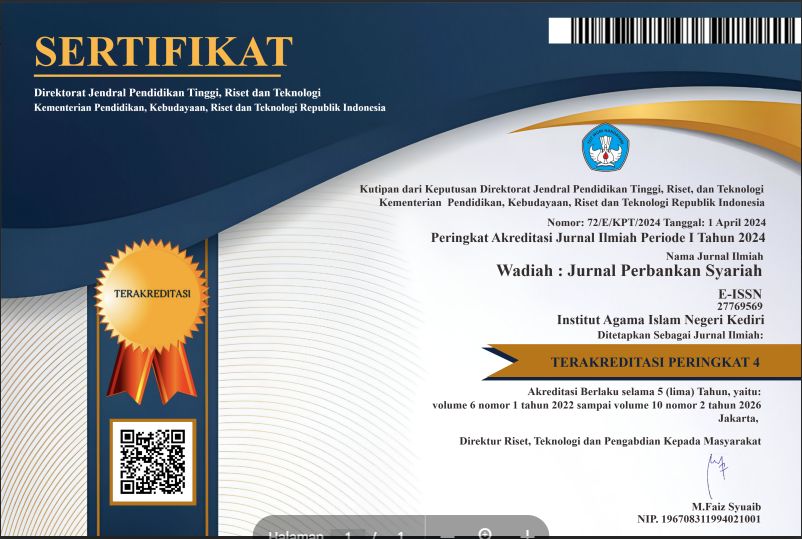PELUANG DAN TANTANGAN LEMBAGA KEUANGAN SYARIAH NON BANK DALAM PERSPEKTIF ISLAM
DOI:
https://doi.org/10.30762/wadiah.v5i2.3511Keywords:
Village Funds, Participation, Islamic Economic Development, Islamic Public Economy, Maqashid Shari‟a.Abstract
Before the Islamic economy developed rapidly as it is today, Indonesia only knew the conventional banking system. However, since 1992 Indonesia began to recognize the system of Islamic financial institutions. There are three basic principles that every Islamic financial institution must have, namely: the principle of equity, theprinciple of participation, and theprinciple of ownership. The prospects and business progress of Islamic financial institutions are realized by the increasingly advanced developments accompanied by existing technology, so LKS must follow developments by improving existing facilities and services. Some of the obstacles and obstacles in the development of LKS include the lack of community readiness to accept the presence of LKS, lack of socialization and education to the community and limited capital and access to capital. Islamic Financial Institutions in an Islamic perspective, namely according to the basis of the Qur'an, hadith, ijma, and qiyas. The foundation based on the Qur'an is divided into three aspects, namely about property management, about trade, and about usury. In the Qur'an there are several verses of the Qur'an including: QS. Al-Baqarah:188; QS. Adz-Dzariyat: 19; QS. Ali-24 Imron: 130; QS. Ar-Ra'd:11; and QS. Ar-Rahman:9. While the basis according to the hadith is divided into four aspects, namely: economics, trade, usury, and debt.
Downloads
Published
How to Cite
Issue
Section
License
Copyright (c) 2022 WADIAH

This work is licensed under a Creative Commons Attribution-NonCommercial-NoDerivatives 4.0 International License.


















